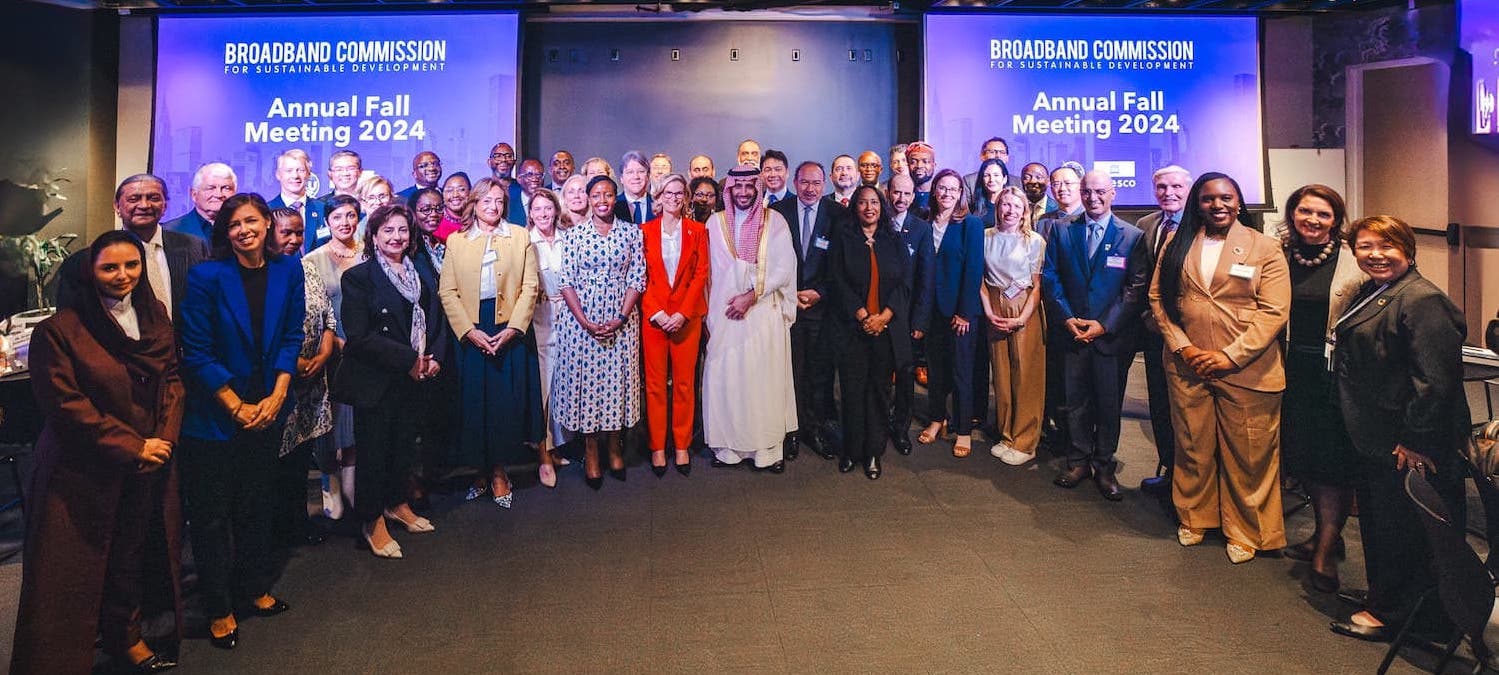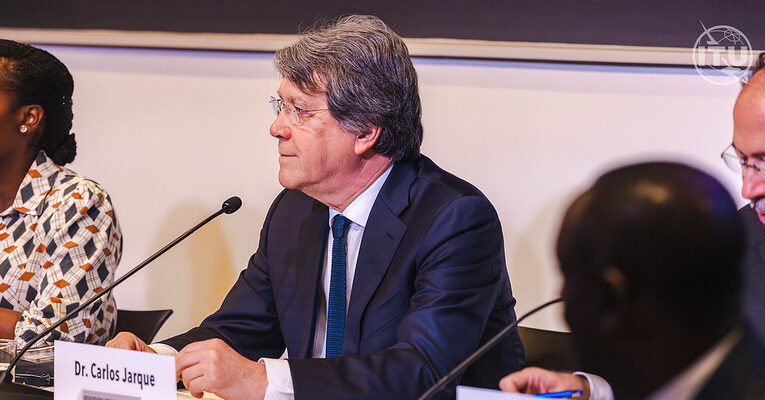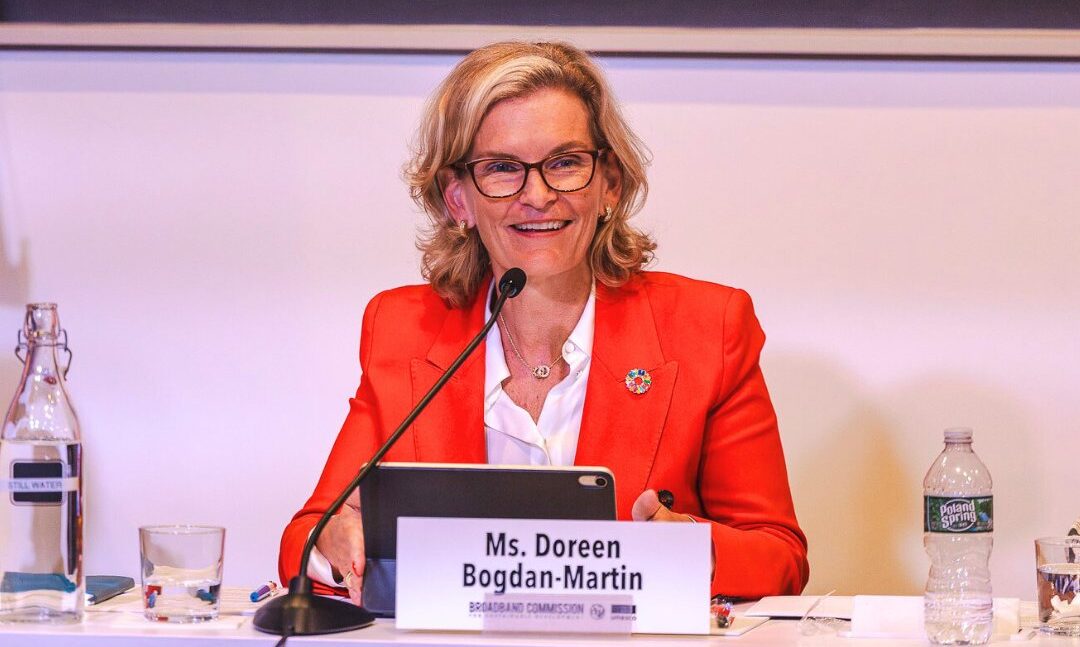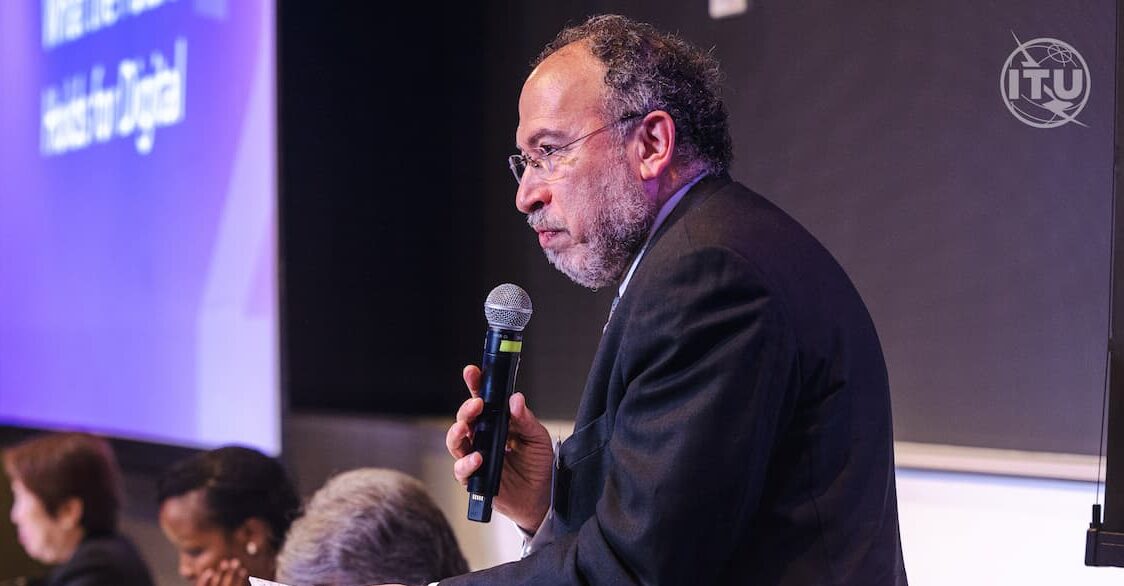Public and private sector leaders emphasize the need for strengthened collaboration to ensure a resilient, safe and inclusive digital future for all.
Originally published on itu.int
New York, 20 September 2024

The Broadband Commission for Sustainable Development at its Fall Meeting today urged governments, industry, academia and civil society to collaborate to support the implementation of the forthcoming UN Global Digital Compact.
Taking place in New York just days before the UN’s Summit of the Future, the Fall Meeting of the Commission underscored the importance of global initiatives to set a course towards a resilient, safe, and inclusive digital future. Both the Compact and the Pact for the Future are expected to be agreed at the upcoming UN Summit.
The Broadband Commission remains committed to placing universal broadband connectivity at the forefront of global policy discussions. It advocates for multistakeholder engagement, demonstrating that international collaboration can address emerging threats and harness opportunities.

“The question is, how do we collectively harness digital technologies to protect, empower, and include every member of our society," said Paula Ingabire, Rwanda's Minister of Information Communication Technology and Innovation. “Achieving this requires stronger collaboration across industries, governments, academic institutions, and international organizations. It requires us to be bold in our vision and especially intentional in our interventions."
During the meeting, the Broadband Commission focused on key digital challenges including the need for countries and the tech sector to enhance digital resilience.
The Commission also emphasized the importance of reinforcing digital infrastructure to withstand disruptions and mitigate growing risks, and it called for greater cross-sector collaboration to strengthen preparedness and crisis response capabilities.
Commissioners and their guests also explored the future of the digital world, emphasizing the impact of emerging technologies and the importance of continued digital innovation.

"Despite the dynamic progress of the telecom industry in recent years, a new era has begun, propelled by the accumulation of new disruptive technologies," said Carlos M. Jarque, representing Carlos Slim, Co-Chair of the Commission. "To maximize innovation, we need solid investment in connectivity and applications, ensuring outstanding quality of networks and, of course, with energy efficiency and privacy assurance."
Commissioners discussed forward-thinking strategies to foster universal, meaningful connectivity, addressing the need for a global framework that promotes equitable and sustainable digital access while considering the rapid evolution of emerging technologies.

“Our work is interconnected with the lives of billions around the world," said Doreen Bogdan-Martin, Secretary-General of the International Telecommunication Union (ITU). “This is a responsibility and an opportunity to use the power of broadband power to do good — now and for generations to come."
The meeting also welcomed the ongoing work of the Commission’s Working Group on Data Governance in the Digital Age, which is developing a Data Governance Toolkit: A Roadmap for the Digital Age. This toolkit is designed to provide governments and regulators with practical guidance for effective data governance, addressing capacity and implementation challenges at the country level.

"In a world characterized by fragmented data regulations and varying capacities, we have the unique opportunity to develop practical tools and actionable strategies," said Tawfik Jelassi, UNESCO's Assistant Director-General for Communication and Information. “These will enable us to harness the power of digital technologies, artificial intelligence, and data while safeguarding human rights and fostering inclusive growth."
The Broadband Commission’s Annual Meeting took place ahead of the Summit of the Future’s Action Day digital track themed A Digital Future for All, convened by the Office of the Secretary-General’s Envoy on Technology (OSET), the International Telecommunication Union (ITU) and the United Nations Development Programme (UNDP). SDG Digital, organized jointly by ITU and UNDP for the second year running, will be featured on the day.
Over 50 Commissioners and representatives attended the Broadband Commission meeting, including government leaders, as well as heads of international organizations, the private sector, civil society and academia.
Special guests attending this year’s Annual Meeting included:
- Emma Inamutila Theofelus, Minister of Information, Communication and Technology, Namibia;
- Dr. ‘Bosun Tijani, Minister of Communications, Innovation and Digital Economy, Nigeria;
- Solly Malatsi, Minister of Communications and Digital Technologies, South Africa;
- Amandeep Singh Gill, the UN Secretary-General’s Envoy on Technology;
- Professor Soumitra Dutta, University of Oxford;
- Anna Ekeledo, Executive Director of AfriLabs;
- Robert Muggah, Co-Founder, Igarapé Institute;
- Nobu Okada, CEO of Astroscale;
- Ibrahima Guimba Saidou, Interim CEO, Partnership for Digital Access in Africa;
- Sally Wentworth, CEO of the Internet Society;
Earlier this year, the Broadband Commission released The State of Broadband 2024: Leveraging AI for Universal Connectivity, the first part of its annual The State of Broadband series. The report reviewed how AI solutions can accelerate progress on broadband advocacy targets aimed at getting everyone online and achieving the UN Sustainable Development Goals (SDGs).
